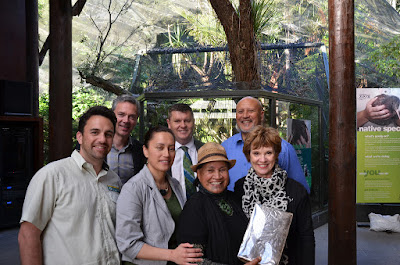Right after the presidential election, visits from U.S. citizens to the Immigration New Zealand website soared. Think 56,300 visits in 24 hours versus the usual average of 2,300. And New Zealand Now — a website about living, working, studying and investing in the country — experienced the same spike, with a 192% increase in U.S. visitors. Even Supreme Court Justice Ruth Bader Ginsburg joked before the election that she might move to New Zealand if Trump won.
While some Americans might not have been serious about their intent to leave the country,
The city has launched an initiative called LookSee Wellington. The goal? To recruit 100 talented technology candidates from across the globe, with a focus on the United States. The program arranges meetings with prospective employers who have roles that match a candidate's skills, and flights and accommodations are covered.
But here’s the thing: Whether you work in the tech industry or not, Wellington is a great place to live. Diversity is celebrated, gay marriage is legal and the first female leader was elected more than 20 years ago. If you hold a work visa valid for two years or more, public healthcare is free or low cost. The city also has more restaurants, cafes and bars per capita than New York City. And New Zealand has been called an "incubation nation," a place where innovation thrives and where people can make a real change and have impact.
We interviewed one expat who has already made the move: San Francisco native Alanna Irving (formerly Krause), who is cofounder of both Loomio, an online tool for collaborative decision-making, and Enspiral, a social entrepreneurship network. Here, Alanna tells why she relocated to Wellington — and why you should, too.
Begley Bloom: What inspired you to move to Wellington?
Irving: I traveled and lived in different countries throughout my twenties, just sort of jumping from one opportunity to the next. It was great, but I eventually came to realize that I wanted to make more considered choices, connect to a community more deeply and find meaningful work that wasn't "just a job." When I discovered a thriving community of social entrepreneurs in such a fantastic city, I knew it was a place I could continually learn and grow, personally and professionally. I've been here over six years, and that's still true.
Begley Bloom: How did you find out about Wellington?
Irving: I originally came to New Zealand on a working holiday visa, with no particular plan to stay long term. At the time, I was just hopping from country to country soaking up experiences. But once I got to Wellington, I pretty much knew I wouldn't want to leave after only one year.
Begley Bloom: Tell me about your companies. When did you start them? What were you doing before?
Irving: My resume before I got here was all over the place. I started a web design company in the U.S., was a translator in Japan, worked in IT in London, studied in Spain and volunteered in India. I didn't know how all these different experiences were going to add up to a career — or if they ever would. When I arrived in Wellington in 2011, I encountered entrepreneurs using the tools of business and software for positive social impact in exciting ways. All my different experiences actually prepared me perfectly to work at the intersection of people, tech, business and impact, so I jumped into Enspiral. It grew from just a few software developers to a network of over 300 people with diverse skills, who want to use their working lives to make the world a better place. A group of us founded Loomio in 2012, when entrepreneurs from Enspiral and activists from the Occupy movement realized we actually needed to solve the same problem: effective decision-making without meetings. We started a worker-owned co-op and built an online tool that's now used by thousands of groups around the world. Read More: forbes

No comments:
Post a Comment